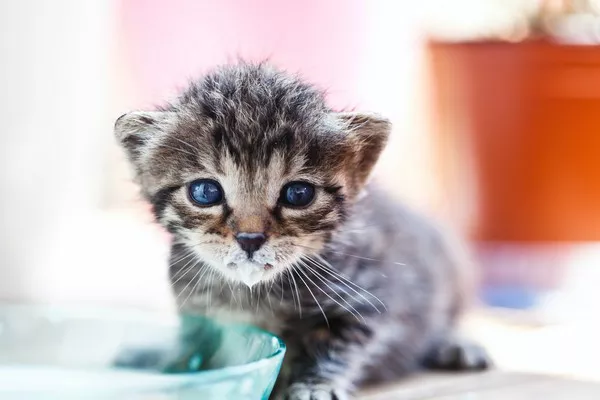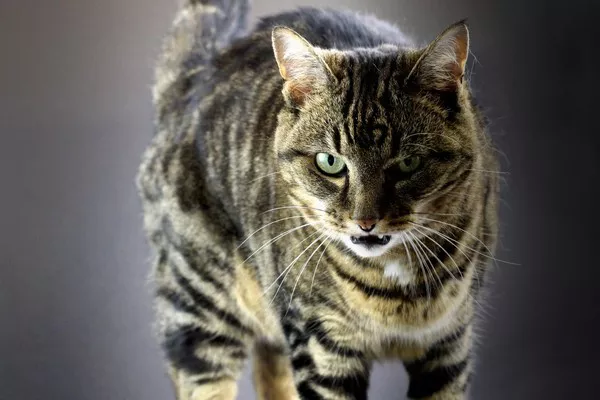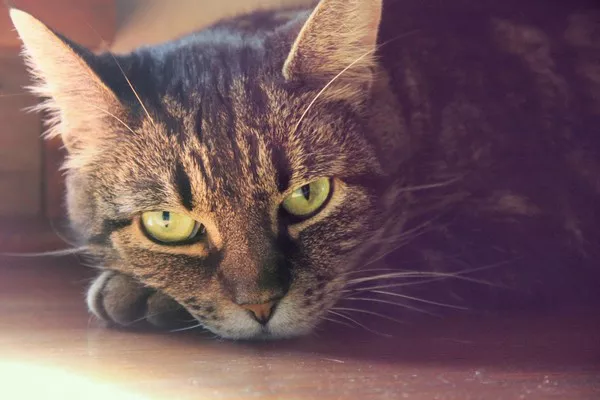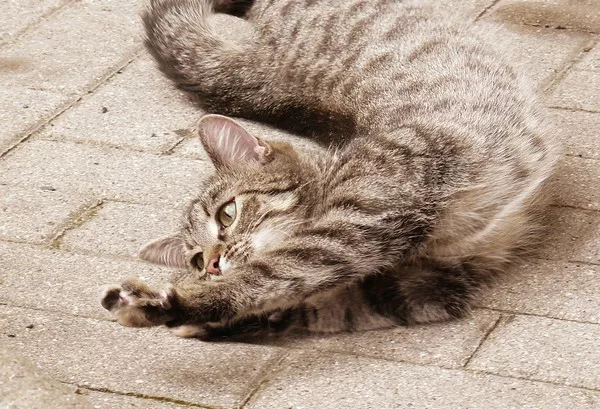The arrival of a litter of kittens is a heartwarming and eagerly anticipated event for cat owners and enthusiasts alike. One of the magical moments during a kitten‘s early development is the opening of their eyes. This article seeks to provide a comprehensive guide on when kittens typically open their eyes, exploring the fascinating process of eye development, variations in timing, and the significance of this milestone in a young feline’s life. Understanding the intricacies of when kittens open their eyes allows for a deeper appreciation of the wonders of cat parenthood.
The First Weeks: A Time of Growth and Development
Newborn kittens enter the world in a delicate and vulnerable state, relying heavily on their mother for warmth, nourishment, and protection. During the initial days of their lives, their sensory systems are still developing, and their eyes remain tightly closed. The first few weeks of a kitten’s life are crucial for their overall growth and development.
Closed Eyes at Birth:
Kittens are born with their eyes closed, a natural protective mechanism that shields their developing eyes from potential external threats. At birth, their eyes are sealed shut, and they navigate their surroundings primarily through their sense of touch, smell, and hearing.
Sensory Development:
During the initial days, kittens are entirely dependent on their mother’s care. Their focus is on feeding, staying warm, and developing strength. The mother cat stimulates urination and defecation in the kittens and provides essential grooming to keep them clean.
Temperature Regulation:
Newborn kittens are unable to regulate their body temperature effectively. They rely on the warmth of their mother and littermates to maintain an optimal temperature. The mother cat’s presence is vital for the survival and well-being of the litter during this critical period.
When Do Kittens Typically Open Their Eyes?
The timing of when kittens open their eyes varies based on individual factors and the specific breed. While there is a general timeline, it’s essential to recognize that each kitten is unique, and variations in eye-opening age are normal.
Around 7 to 14 Days:
In most cases, kittens begin to open their eyes between 7 to 14 days after birth. This period is considered normal, and gradual eye opening occurs as the kittens’ eye tissues continue to develop. The process is not instantaneous but happens progressively.
Breed Variations:
Different cat breeds may exhibit variations in the timing of eye opening. Some breeds may open their eyes slightly earlier or later than the average timeframe. Factors such as genetics and individual development play a role in these variations.
Breeds with Folded or Flattened Faces:
Breeds with distinctive facial features, such as Persian cats with their flat faces, may experience a delay in eye opening. The structure of their facial anatomy can influence the time it takes for the eyes to fully open.
Individual Differences:
Within a single litter, individual kittens may open their eyes at different times. This is a normal occurrence and is influenced by factors such as genetics, birth order, and the overall health of each kitten.
The Magical Moment: Observing the Eye-Opening Process
Witnessing the moment when kittens open their eyes is a cherished experience for cat owners. The process is gradual, and it unfolds over several days. Here’s what to expect during this magical phase:
Partial Opening:
Initially, kittens may experience partial eye openings, where a small slit appears as they begin to explore their sense of sight. The eyes may appear blue or gray during this stage, a common characteristic of many kittens.
Gradual Unveiling:
Over the next few days, the eyes gradually open further, revealing more of the iris and pupil. The kittens’ ability to see develops as the eye muscles strengthen and the visual cortex of the brain matures.
Full Eye Opening:
By the end of the second week or the beginning of the third week, most kittens will have fully opened their eyes. The eyes now exhibit a more defined color, and the kittens can actively use their sense of sight to navigate their surroundings.
Factors Influencing the Timing of Eye Opening
Several factors contribute to the variation in the timing of when kittens open their eyes. Understanding these factors provides insights into the intricate process of feline development:
Genetics:
Genetic factors play a significant role in determining the timing of eye opening. The kitten’s genetic makeup influences the rate of development of its eyes and other sensory organs.
Breed-Specific Characteristics:
Different cat breeds have distinct physical characteristics, and these can influence the time it takes for kittens to open their eyes. Breeds with folded or flattened faces, for example, may experience delays.
Birth Order:
The order in which kittens are born can impact their development. First-born kittens may open their eyes slightly earlier than their later-born siblings, although this is not a strict rule.
Environmental Factors:
The environment in which the kittens are born and raised can influence their development. A warm and stable environment promotes healthy growth, while environmental stressors may contribute to delays.
Health Status:
The overall health of the kittens plays a crucial role in their developmental milestones. Kittens born with health issues may experience delays in eye opening and other developmental aspects.
The Significance of Eye Opening in Kittens
Beyond the joyous moment of seeing a kitten’s eyes for the first time, the opening of their eyes signifies important developmental milestones and behavioral changes:
Sensory Exploration:
Eye opening marks the beginning of a kitten’s sensory exploration of its environment. As their vision develops, kittens become more aware of their surroundings, enabling them to interact with their littermates and mother more actively.
Bonding with Mother:
Once their eyes are open, kittens can establish stronger visual connections with their mother. Visual cues become an integral part of the bonding process, enhancing communication within the feline family.
Coordination and Mobility:
Improved vision contributes to enhanced coordination and mobility. Kittens can start to move around more confidently as they rely on both their sight and other senses to navigate their surroundings.
Introduction to Solid Food:
As kittens become more visually aware, they also begin the gradual transition from solely nursing to exploring solid food. The ability to see their surroundings facilitates this important stage in their nutritional development.
Caring for Kittens During the Eye-Opening Phase
While kittens go through the enchanting process of opening their eyes, there are essential steps that cat owners can take to ensure their well-being:
Provide a Warm Environment:
Maintain a warm and cozy environment for the kittens, especially during the first few weeks of life. Ensure that the nesting area is free from drafts, and use a heating pad or a warm blanket to help regulate their body temperature.
Monitor for Any Abnormalities:
Keep a close eye on the kittens’ eye-opening progress. While variations in timing are normal, any signs of redness, swelling, discharge, or abnormal behavior should be promptly addressed with a veterinarian.
Promote a Stress-Free Environment:
Minimize stressors in the environment to support healthy development. Limit unnecessary handling during the first few weeks, and provide a quiet and secure space for the mother cat and her kittens.
Ensure Proper Nutrition:
A well-balanced and nutritionally complete diet is crucial for the health and development of both the mother cat and her kittens. Consult with a veterinarian to determine the appropriate food for the nursing mother and the growing kittens.
Regular Veterinary Check-ups:
Schedule regular veterinary check-ups for the mother cat and her kittens. A veterinarian can assess their overall health, address any concerns, and provide guidance on vaccinations and deworming.
See Also: When Do Kittens’ Eyes Change Color?
Conclusion
The opening of a kitten’s eyes is a captivating and emotionally significant event that marks the beginning of their sensory exploration of the world. Understanding when kittens typically open their eyes, the variations in timing, and the factors influencing this developmental milestone allows cat owners to actively participate in and celebrate the journey of feline parenthood.
As each kitten unfolds its eyes at its own pace, it serves as a poignant reminder of the uniqueness and individuality within each litter. By providing a supportive and nurturing environment during this crucial phase, cat owners contribute to the health and well-being of the mother cat and her adorable offspring. As the eyes of kittens open to the world, a new chapter in their lives begins—one filled with discovery, playfulness, and the enduring bond between feline companions and their human caretakers.

























